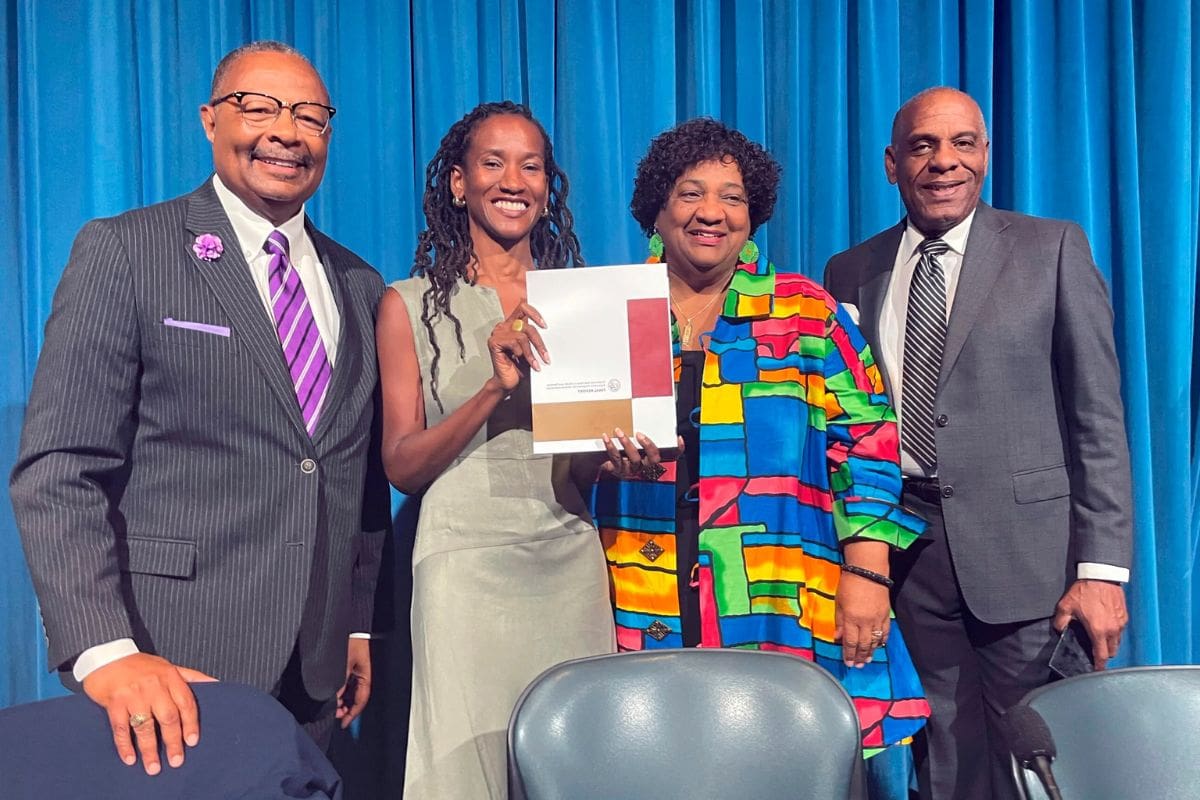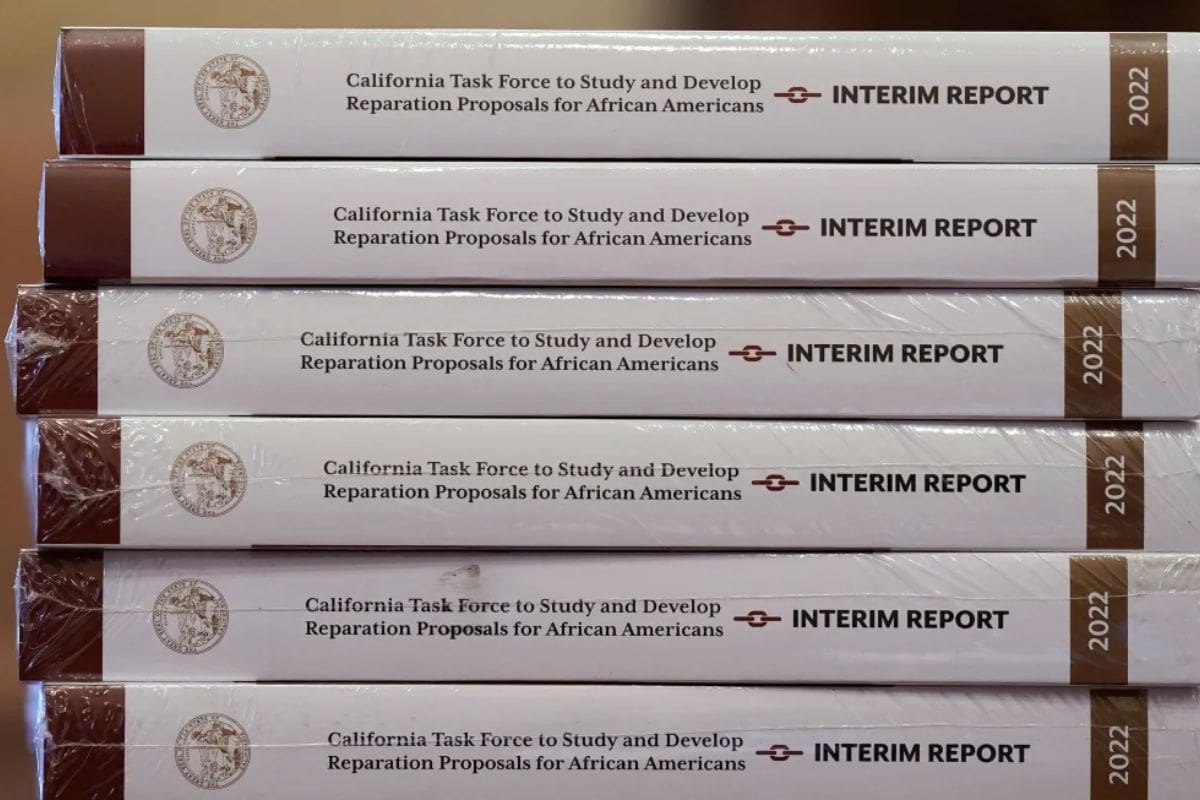California Lawmakers Unveil Proposals: In a significant move towards addressing historical injustices, California lawmakers have recently unveiled a series of proposals aimed at initiating discussions on slavery reparations.
The Reparations Priority Bill Package, spearheaded by Assemblywoman Lori D. Wilson, encompasses a range of diverse initiatives that extend beyond conventional cash payments.
As the state grapples with budget constraints, these proposals aim to acknowledge the immeasurable impacts of slavery while seeking innovative solutions to redress its enduring consequences.
With legislative action now underway and future steps yet to be determined, the unveiling of these proposals marks a crucial milestone in the ongoing pursuit of justice and equality.
Key Takeaways
- The Reparations Priority Bill Package in California includes 14 proposals aimed at addressing historical injustices and rectifying past human rights violations and crimes against humanity.
- The package goes beyond cash payments and includes initiatives such as a state-funded grant program to reduce community violence in Black neighborhoods, expansion of the CROWN Act to protect the rights of Black individuals in the workplace, and a grant program for STEM-related programs in Black communities.
- Assemblywoman Lori D. Wilson, who chairs the California Legislative Black Caucus, emphasizes the importance of criminal justice reforms, property rights, education initiatives, civil rights protections, and food justice in addressing reparations.
- California lawmakers are acknowledging budget constraints and are exploring various solutions such as using state reserves, seeking public-private partnerships, redirecting funds from other programs, and engaging in discussions with federal officials for potential federal funding.
California Lawmakers Unveil Reparations Priority Bill Package
California lawmakers have recently unveiled the Reparations Priority Bill Package, a comprehensive set of measures aimed at addressing historical injustices against descendants of enslaved Africans. Led by the California Legislative Black Caucus, the 2024 Reparations Priority Bill Package comprises 14 proposals that seek to rectify past human rights violations and crimes against humanity.
One significant measure included in the package is a formal apology for the injustices inflicted upon enslaved Africans and their descendants. This apology aims to acknowledge the immense suffering and trauma endured by this community throughout history. By unveiling this package, California lawmakers demonstrate their commitment to rectifying past wrongs and promoting racial justice.
The Reparations Priority Bill Package represents a significant step towards addressing the historical injustices that have disproportionately affected the descendants of enslaved Africans in California.
Diverse Initiatives Beyond Cash Payments
In addition to excluding direct cash payments, the Reparations Priority Bill Package in California encompasses a wide range of diverse initiatives aimed at addressing historical injustices against descendants of enslaved Africans. These initiatives include:
- State-funded grant program: The package includes a program that aims to reduce community violence in Black neighborhoods. This program will provide financial assistance to initiatives that promote peace and safety in these communities.
- Expansion of the CROWN Act: The legislation proposes expanding the CROWN Act, which prohibits discrimination based on natural hairstyles, to further protect the rights of Black individuals in the workplace and other settings.
- Grant program for STEM-related programs: The package also includes a grant program that will provide funding to STEM-related programs specifically targeted at Black communities, aiming to increase representation and opportunities in these fields.
These initiatives demonstrate a commitment to addressing historical injustices through a multifaceted approach, focusing on community empowerment, anti-discrimination measures, and educational opportunities.

ALSO READ: California Black Caucus Makes History With Reparations Announcement
Assemblywoman Lori D. Wilson’s Perspective
Building upon the diverse initiatives proposed in the Reparations Priority Bill Package, Assemblywoman Lori D. Wilson, chair of the California Legislative Black Caucus, offers a comprehensive perspective on addressing reparations, encompassing various aspects such as criminal justice reforms, property rights, education, civil rights, and food justice.
Wilson emphasizes the need for a multi-faceted approach to reparations, recognizing that the impact of slavery and systemic racism extends beyond monetary compensation. She highlights the importance of criminal justice reforms, aiming to address the disproportionate incarceration rates and discriminatory practices faced by Black communities.
Wilson also emphasizes the significance of property rights, aiming to rectify historical injustices in land ownership. Additionally, she advocates for education initiatives that promote inclusivity and equity, civil rights protections, and a focus on food justice to address disparities in access to healthy and affordable food.
Through her comprehensive perspective, Wilson seeks to dismantle the legacy of slavery and promote racial justice in California.
Acknowledging Budget Constraints and Seeking Solutions
Despite the challenging budget constraints faced by the state, California lawmakers are actively seeking creative solutions to address the financial aspect of implementing slavery reparations. State Sen. Steven Bradford, a member of the reparations task force, acknowledges the potential challenges due to the state’s budget deficit. However, he emphasizes the importance of creating a budget placeholder for reparations, suggesting that state reserves could fund the proposed measures.
To navigate these constraints, lawmakers are considering various approaches, such as:
- Exploring public-private partnerships to secure additional funding for reparations.
- Evaluating the feasibility of redirecting funds from other programs or initiatives to support reparations.
- Engaging in discussions with federal officials to determine if federal funding can be allocated towards California’s reparations efforts.
Legislative Action and Future Steps
To advance the legislative action surrounding slavery reparations in California, lawmakers are now focusing on the next steps in implementing the proposed measures.
The California Legislative Black Caucus positions the introduction of the reparations package as the initial step in a multi-year effort. This comprehensive strategy aims to address historical injustices and displays a commitment to long-term legislative action.
The proposed measures are seen as significant in the ongoing effort to implement the recommendations outlined in the reparations report. It is important to recognize the complexity of the issues involved and California’s commitment to rectifying past wrongs.
As part of this commitment, lawmakers are diligently working towards the implementation of the proposed measures, taking into account the budget constraints and seeking viable solutions.
The future steps in the legislative process will require careful consideration and collaboration to ensure the successful execution of slavery reparations in California.
Conclusion Of California Lawmakers Unveil Proposals
California lawmakers have introduced a comprehensive package of bills aimed at addressing the issue of slavery reparations. These initiatives go beyond cash payments and include various measures to address historical injustices.
Assemblywoman Lori D. Wilson has highlighted the importance of acknowledging budget constraints while seeking effective solutions. This legislative action marks an important step towards reparations, and further steps will be taken to ensure progress in this area.

